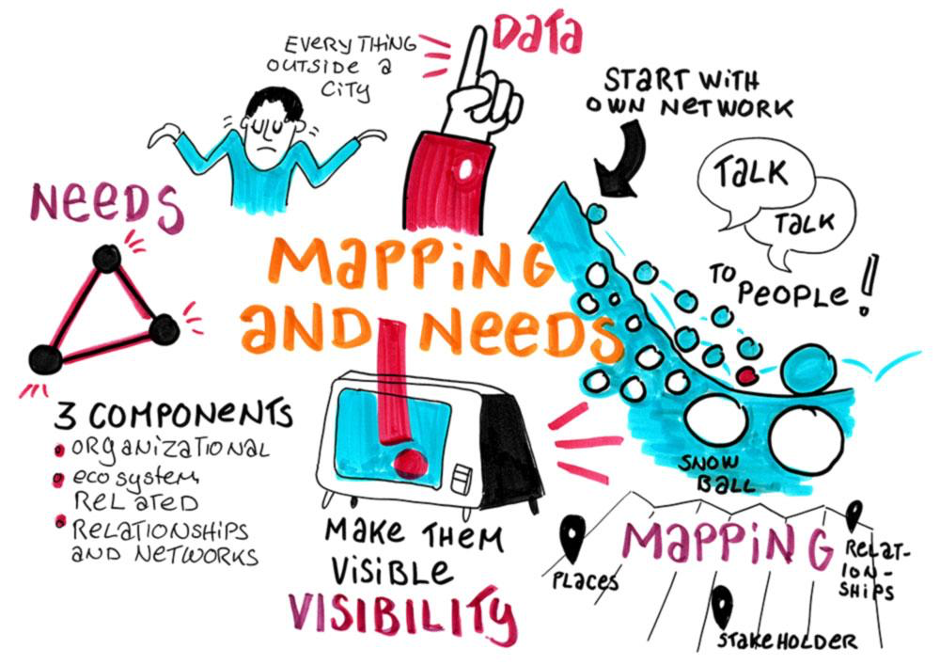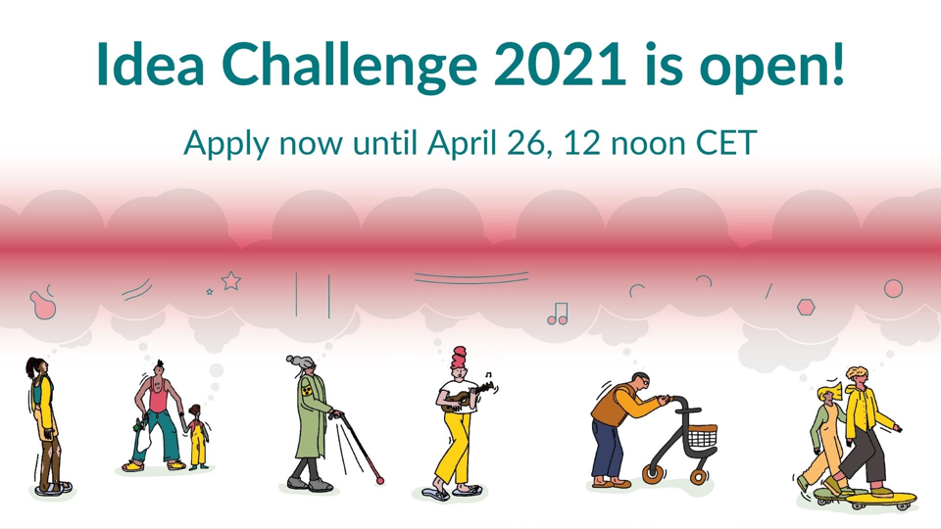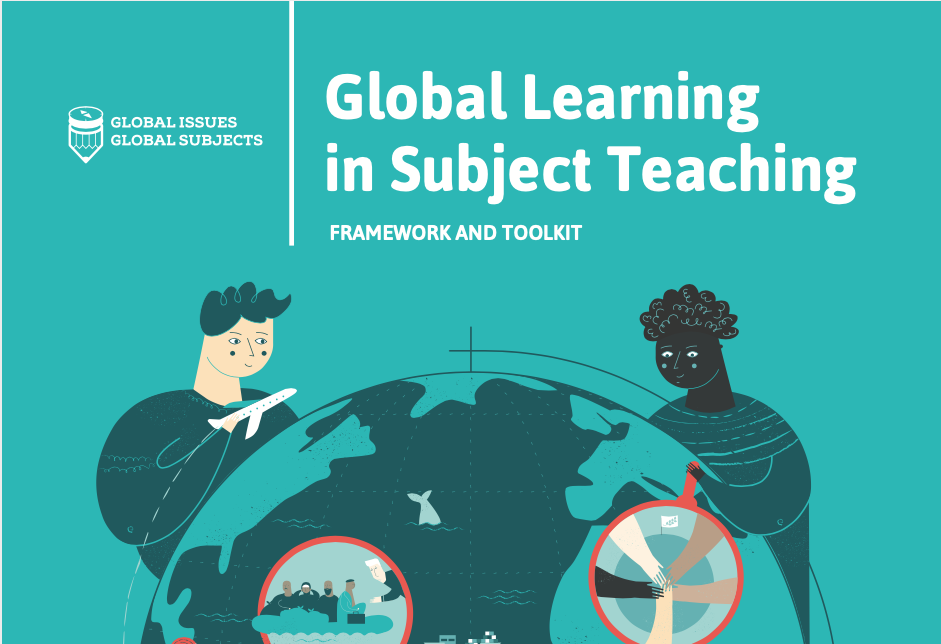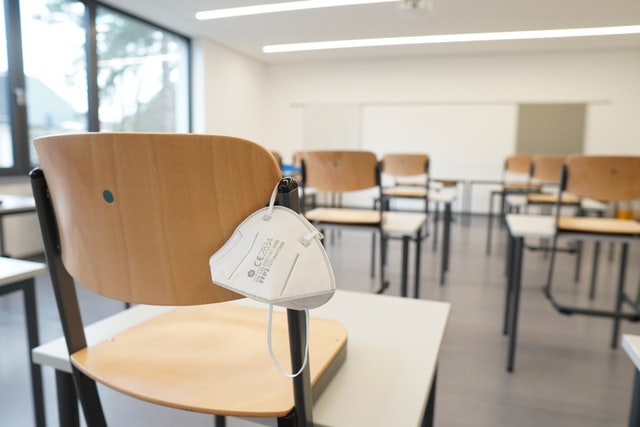 |
||||||||||||||||||||||||||||||||||||||||||||||||||||||||||||||||||||||||||||||||||||||||||||||||||||||||||||||||||||||||||
|
NECE NEWSLETTER 01 | 2021
Dear Colleagues, |
|||||||
| NEWS about NECE | |||||||
|
INSIDES FROM NECE AND PARTNERS
Online election guest lecture by ProDemos
‘Young Voice’: the Vote Match for Youngsters  Image: © Gabriele Schlipf. Visualization by a graphic recorder during our lunch with ideas on ‘civic deserts’ at NECE CAMPUS 2020.
Image: © Gabriele Schlipf. Visualization by a graphic recorder during our lunch with ideas on ‘civic deserts’ at NECE CAMPUS 2020.Civic Europe is launching a mapping of the local civic context & actors in four so-called civic desert regions in Central and Eastern Europe. The mapping will help identify the biggest opportunities and threats to civil society in those regions, the relationships between actors and the potential for more cooperation. The results will be analyzed in a recommendations paper and will be visualized in an interactive online map. If you are from one of these areas, do civic work and want to participate in the mapping, get in touch with the team in charge at civic@sofiaplatform.org. Follow Civic Europe on Facebook or subscribe to their newsletter to stay updated! Or - check out the story they have published on the mapping here! Civic Europe Idea Challenge 2021: New call for ideas starting in March!  The second round of Civic Europe Idea Challenge (2021) is now open! The Idea Challenge is looking for up to 20 ideas that strengthen active citizenship at the local level, ideally by means of civic education. The program aims at supporting civil society organizations and projects especially from places characterized by low civic cohesion, meaning that community members lack the opportunities, drive and competences to participate in social and civic life. Eligible countries are Bulgaria, Croatia, the Czech Republic, Greece, Hungary, Italy, Poland, Portugal, Romania, Slovakia, Slovenia and Spain. More information on the application process can be found on the Civic Europe website! (Graphic illustration by Actu&Tactu) Commemorating the Shoah and preventing crimes against humanity On 1 November 2005, the UN General Assembly declared 27 January, the day of liberation of the Auschwitz camp, as Holocaust Remembrance and Prevention of Crimes against Humanity Day in all member countries. From 25 January to 5 February, the Zentrum fir politesch Bildung and its partners organised 38 different events and educational activities related to this commemoration. More than 1,100 children, teens and adults attended these events online or live. Read more. INSIDES FROM EENCE (Eastern European Network for Citizenship Education) What is the difference between an ordinary and a citizen journalist? You’ll find the answer on www.eence.eu, published in the results of the EENCE working group “Civil journalism as a tool for the formation and development of civil society”. This was only one of more than ten EENCE working groups that met in 2020. You can find online courses on Human Rights and History Education, SDGs, the manual on“Citizenship Education in Regional Conflict Regions” and more results of the working group projects. This year, EENCE will have working groups such as Women in local communities or Instructional design in citizenship education. Check the other working groups that have been established for 2021! Find out more. Please get in touch with the Coordination Council (eenceboard@gmail.com) if you’d like to share your experiences with one of the groups or if you would like to know more about them. |
|||||||
| RESTARTING EUROPE | |||||||
|
The effects of COVID-19 and school closures on student voice in secondary schools | |||||||
| GOOD PRACTICE: IDEAS & EXAMPLES | |||||||
How to discuss terrorism in class?
|
|||||||
CITIZED – a project that evolved from the NECE Focus Group “Competences for Democratic Culture”
|
|||||||
|
In Europe Schools: JOIN NOW! How to catch history in the act? This question challenges students across Europe as part of the In Europe Schools programme. In this unique online exchange programme, students dive into their local histories, focusing on themes like Difficult History, Migration, Climate Change and Gender Equality and creating their own documentaries to share with their peers from partner schools across Europe. Developed by EuroClio and VPRO, this project offers the perfect alternative to a physical exchange! All the educational resources are ready-made and freely available, supported by tutorials that explain all the ins and outs of documentary-making and research. Head over to the In Europe Schools YouTube Channel for the latest student-made documentaries. Interested? Register here! Would you like to participate through eTwinning and find your own partner school? Please contact via eugenie@euroclio.eu. In the meantime, have a look at vprobroadcast.com/ineuropeschools. |
|||||||
Global Learning in Subject Teaching: Framework and Toolkit

The brochure “Global Learning in Subject Teaching: Framework and Toolkit” has been developed as a resource for teachers, educators and educational institutions on how to reach pupils with Global Learning. It explains what topics, skills, values and attitudes are covered by Global Learning. It clarifies why and how to address the United Nations Sustainable Development Goals and controversial topics in the classroom. Finally, it formulates a quality benchmark for Global Learning. In its practical part, the brochure provides the reader with a toolkit of 20 ready-to-use lesson plans for maths, science, geography, ethics/religious education, civics, national language and English where the subject’s curriculum topics are linked to global issues such as migration, climate change and gender equality. Download: https://globalna.ceo.org.pl/global-learning-subject-teaching-framework-and-toolkit |
|||||||
|
The German Commission for UNESCO is looking for young, dedicated women* from Egypt, Jordan, Morocco, Lebanon and Tunisia to assist in cultural and educational institutions as well as UNESCO sites in Germany Young women* are invited to gain professional experiences in cultural and educational institutions. Participants will receive a monthly stipend to cover expenses. Travel costs and insurances will be covered. The programme will take place from August 24th until November 19th and requires at least a good level of German. The application deadline is March 31th. Programme information, as well as the application form can be found here: https://www.kulturweit.de/incoming | |||||||
| EU PROGRAMMES AND EUROPEAN INITIATIVES | |||||||
What will the neighbors think? Two stories from the Civic Europe Capacity Building program in Bulgaria
|
|||||||
|
Observatory on History Teaching in Europe The Observatory on History Teaching in Europe has taken up its work. After a first meeting in February 2021 the Governing Board elected its Bureau and established its first work programme for the next three years with the aim to demonstrate the sustainable importance and value of the Observatory. More. |
|||||||
|
New European platform for citizenship education eTwinning and School Education Gateaway are about to launch a joint website to make their educational offers more accessible to the different actors in citizenship education. With the use of a survey, the needs of various actors in the educational landscape were determined in order to create an online platform that is as target group-oriented as possible. Stay tuned! |
|||||||
|
New Erasmus+ programme: Call for proposals is coming soon! Bridges to Europe is about to publish a call for proposals – they are very excited to discuss project proposals, especially around their thematic priorities. These include innovation in digital transformation, sustainability or opening up opportunities for young people. Stay tuned and read more. Please note: Any links provided are for information and discussion only. The views expressed are not necessarily shared by NECE as a networking platform. | |||||||
| WANTED: Your Contribution to the NECE Newsletter! | |||||||
| Are you involved in citizenship education in Europe or North Africa? Are you running projects aimed at promoting democratic values and tolerance in your country or region? Do you think NECE (and the readers of this Newsletter) should know about your project and do you want to enlist their support/advice? We’d love to hear from you! Send your contributions, ideas, comments, and questions to: nece-newsletter@labconcepts.de or share your stories and projects via Social Media using our Hashtag #digitalNECE. | |||||||
You are receiving the NECE Newsletter because you subscribed and have confirmed that you wish to receive information about the NECE-Networking European Citizenship Education initiative. To unsubscribe please click here. |
|||||||
 Youngsters in the Netherlands often don’t vote in elections. The reason is that they are often lacking information on the political parties and the content of party programmes. This is why, ahead of the Parliamentary elections on March 17th in the Netherlands, ProDemos developed the online tool Young Voice in addition to the usual Vote-Match. Youngsters decide for themselves what topics are important to them. They are then asked to either agree or disagree with a minimum of 20 statements. Every statement is introduced by a short film which explains a certain topic and presents arguments and counter-arguments to make the statement more accessible for the youngsters.
Youngsters in the Netherlands often don’t vote in elections. The reason is that they are often lacking information on the political parties and the content of party programmes. This is why, ahead of the Parliamentary elections on March 17th in the Netherlands, ProDemos developed the online tool Young Voice in addition to the usual Vote-Match. Youngsters decide for themselves what topics are important to them. They are then asked to either agree or disagree with a minimum of 20 statements. Every statement is introduced by a short film which explains a certain topic and presents arguments and counter-arguments to make the statement more accessible for the youngsters.  The results of the Council of Europe and UNESCO teacher survey conducted in Europe and the MENA region indicated that opportunities for students to have their voice heard and learn the competences to assert their rights had significantly decreased due to the pandemic and subsequent school closures during 2020. Read
The results of the Council of Europe and UNESCO teacher survey conducted in Europe and the MENA region indicated that opportunities for students to have their voice heard and learn the competences to assert their rights had significantly decreased due to the pandemic and subsequent school closures during 2020. Read  The murder of the French teacher Samuel Paty proved how difficult it can be to discuss terrorism in class. Many teachers in the Netherlands, especially of civic education, are unsure if and how they should talk about terrorism in class. At the same time, in a world of global connections and social media, every terrorist act has a deep impact on schoolchildren and youth. Out of the task force “Radicalization and Polarization” established in 2015 a website was developed where teachers of different schools and grades might find material and instructions on how to discuss terrorism in class. The material was developed by experts from different departments of Utrecht University. Teachers can find materials that make it possible to discuss phenomena like IS and also terrorist attacks like those in Barcelona, Brussels or Kabul in class.
The murder of the French teacher Samuel Paty proved how difficult it can be to discuss terrorism in class. Many teachers in the Netherlands, especially of civic education, are unsure if and how they should talk about terrorism in class. At the same time, in a world of global connections and social media, every terrorist act has a deep impact on schoolchildren and youth. Out of the task force “Radicalization and Polarization” established in 2015 a website was developed where teachers of different schools and grades might find material and instructions on how to discuss terrorism in class. The material was developed by experts from different departments of Utrecht University. Teachers can find materials that make it possible to discuss phenomena like IS and also terrorist attacks like those in Barcelona, Brussels or Kabul in class.